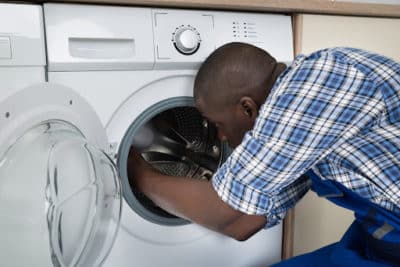If you have been debating whether or not it would be beneficial to conduct continuous background checks on your contractor network, here are three of the signs that it is a good idea to move forward with this screening option.
Continuous background checks, or continuous criminal monitoring, are a proactive complement to standard background checks. This FCRA- (Federal Credit Reporting Act) compliant service provides your organization with almost real-time alerts on U.S. arrest, booking, or incarceration activity that occurs within your network after the initial background check or between rechecks.
Most organizations background screen for concerning records in their contractors’ history before the contractor can begin the work outlined in their contract. The problem with this is that these screenings are historical in nature and only look back in time. If the contractor commits a crime (or anything else that would go against the requirements of your organization) after their contract begins, your organization will not know about it.
The advancements in technology, including the moves that many police departments and courts have made to online records systems, have enabled continuous background checks to become even more readily available in recent years. Is it time for your organization to add this service to your contractor risk-management strategy?
3 Signs You Should Be Conducting Continuous Background Checks On Your Contractors
One: You are Conducting Background Screenings In Set Cycles
If your organization conducts background checks on a two-year cycle, any criminal issues that occur between these standard rechecks can go undetected. Continuous background checks allow your organization to see alerts on criminal activity including DUI, theft, assault, and more. Criminal activity like this can increase your company’s risk and liability, making awareness of these potential behaviors critical to the protection of your customers, brand, and reputation.
Two: Your Organization Works With A Geographically-Dispersed Contractor Network
Contractor Network
Many organizations use contractor networks because they need to provide services to their customers over a large geographic area. If the contractors that your organization contracts with live and work in the same local communities that your customers do, that usually means that your organization may not have a large in-person presence there.
The geographic disbursement of a contractor network can make it difficult to manage contractors, and even more difficult to stay aware of any concerning activity. Continuous monitoring can alert your organization of criminal activity like this in near real-time from Department of Corrections facilities and county-level jails so your organization can remain proactive and informed about those in the network and any risks they may pose.
Three: Your Contractors Are Providing In-Home Services
If your contractor network is providing in-home services to your customers, then you need to know that you are doing everything possible to create a safe and comfortable environment for all parties involved. Your customers need to know it too.
Many companies whose extended network interacts directly with their customers have turned to solutions like this in recent years as an added safeguard against risk exposure. If your company is using contractors to deliver, repair, or support your products or services, continuous background checks are a highly effective complement to standard background screening.
At PlusOne Solutions, we want to make contractor compliance easy for your organization. Each of our services is tailored to meet the needs of companies that work with contractor networks. Contact us today to learn more about continuous background checks.
Contents are provided for information purposes only and should not be construed as legal advice. Users are reminded to seek legal counsel with respect to their obligations and use of PlusOne Solutions services.
About PlusOne Solutions
PlusOne Solutions has been an industry leader in the risk management field by specializing in compliance programs that meet the complex challenges of geographically dispersed contractors, vendors, and employee networks. PlusOne Solutions protects companies from possible financial, legal, and reputational risks associated with contractor and vendor relationships while creating safer work environments. To learn more, visit https://www.PlusOneSolutions.net.


 Contractor Network
Contractor Network
